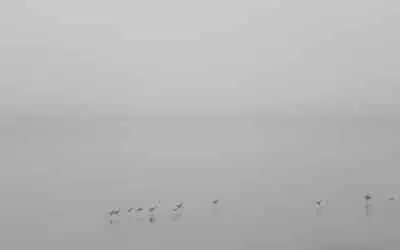New Year’s Eve
Blog | Reflections on life | What about me?
In this article, Mila Khyentse talks about the New Year’s Eve and its meaning in general and in Tibet in particular. Happy New year!

New Year’s Eve
Here comes the new year.
A new year is another year, but also a vast field of possibilities, of opportunities, of changes.
A new year also implies a past year, which we mourn in a way.
The tradition of the new year exists in almost all cultures because we human beings need to situate ourselves in time and space. In terms of time, we need beginnings and ends, starts and stops. This is the principle of the new year.
One year is gone, another one begins: it reminds us of our condition.
New Year’s Eve in Tibet
In Tibet, traditionally, the new year, Losar (lo gsar) is celebrated during 15 days according to the lunar calendar (i.e. it is always celebrated after ours which follows the Gregorian solar calendar).
These 15 days of festivities always begin with a general cleaning of the houses. All the inhabitants accompany the old year, Lonying (lo rnying), towards its end and use this time to remember the main events that took place. In fact, during these days of housekeeping, the evening conversations around the fireplace are mostly about the past year. To say goodbye to the old year, as far as possible, they try to pay all their debts and put an end to all quarrels.
It is also a good time to refresh the decoration and often apply auspicious signs on the walls, such as the sun, the moon, the lotus, etc., which will favor a good year to come. Flowers are placed all over the place to brighten up the atmosphere and bushels of juniper and cedar branches are prepared, as well as offering substances such as yogurt (there is a yogurt festival for the New Year in Lhasa, the capital of Tibet) and honey to be offered to the beings of nature. Most Tibetans consider that these beings are their ancestors or their “lords” and that they are the true guardians of their land, of the nature. Thus, these offerings of fumigation and pleasant foods, stemming from an ancient Himalayan culture, perpetuate the connection that people have with their natural environment. Starting a new year under good auspices is therefore about fostering the strength of the living place first and thus of the community in general.
For us, it is essential to know where we come from in order to be able to figure out where we are going. This is what the passage from the old to the new year reminds us.

Then, to foster a good personal year, new clothes are bought and food for special occasions, such as fried doughnuts, kabsés, is prepared and alcoholic drink, chang (barley alcohol usually consumed hot), is brewed to celebrate the new year.
It is then the occasion for family, friends, colleagues to gather in the houses and to go together in the temples in which new year rituals are organized.
Finally, divination ceremonies are organized to know how the coming year will unfold for each and everyone, but also for the whole country: the Nechung oracle, the official oracle of the Tibetan government (now in exile in India) officiates on the first day of the new year.
It is thus, traditionally, a true rite of passage that corresponds to the New Year in most cultures. It gives a profound rhythm to our lives as human beings and links us to our roots..
Not to forget our roots, where we come from, is one of the fundamental missions of the Dzogchen Today! project. For us, it is essential to know where we come from in order to be able to figure out where we are going. This is what the passage from the old to the new year reminds us.
This is what we will try to bring in all the years to come with this project: a true knowledge not to forget who we are and not to lose ourselves in the vicissitudes of the events of the future.

Written by Mila Khyentse
Plus d’Articles
Impermanence, Inconstancy and Integration
In « Impermanence, Inconstancy and Integration » Damien talks about how impermanence leads us to the immutable.
The All-Excellent’s Mighty Path of Aspiration
“The All-Excellent’s Mighty Path of Aspiration ” is a new translation from the Dzogchen Today! Translation Committee. Enjoy!
The Eight Sparks of Compassion
In “The Eight Sparks of Compassion”, Mila Khyentse talks about the real nature of phenomena for Dzogchèn: sparkles of compassion.
The Pure and Perfect All-Encompassing Mind
“The Pure and Perfect All-Encompassing Mind” is a new translation from the Dzogchen Today! Translation Committee. Enjoy!
Crocodile Dzogchen
In “Crocodile Dzogchen”, Nils talks about the way we follow the Dzogchen path in exploring the unknown territory of our mind.
Hic et nunc
In “Hic et Nunc”, Grégoire tries to answer this question: “On the Dzogchen path, when can we reach the primordial nature recognition?”





